By Patti Morrow, Epicure & Culture Contributor
The Azores is one of the best places in the world for whale watching, with a strong cultural connection to whales.
While there are some 25 species of whales in the archipelago, the mammoth sperm whale – forever immortalized as “Moby Dick” – is the most common.
We chose to go out to find whales and dolphins with Futurismo, one of the most experienced and responsible ecotourism outfits, based in Ponta Delgada on the island of São Miguel.
The staff of Futurismo are nature lovers engaged in studying and preserving the environment and wildlife in the Azores, so if you’re interested in exploring ecotourism in Portugal, booking with them is the way to go.
Responsible Tourism In The Azores
Before heading out to sea we listened to a briefing by Miranda, one of the marine biologists, who explained how Futurismo was one of the first companies responsible for the transition from whale hunting to whale watching.
She also talked about safety measures, respect for the animals, and rules for observation.
Futurismo is very conscientious about being non-obtrusive on their watch tours, complying with the WCA (World Cetacean Alliance) established minimum standards.
During observation in the animals’ natural habitat, they strictly forbid chasing after whales or dolphins, disturbing, isolating or feeding the fascinating animals.
If any of the animals appear agitated or stressed by the observation boat, the distance between the vessel and animal is increased, or the boat just exits the area. If one of the animals approaches the vessel, the engine is idled.
Out To Sea
After donning our über-fashionable fishermen-style raincoats, heavy, baggy rain pants and lifejackets, we boarded our boat to begin our search for the cetaceans.
Because of its location in the middle of the Atlantic Ocean between North America and Europe, the Azores is a passage point for about a third of the world’s whale species.
Launching out to sea, we were treated to a picturesque view of the shore from our boat.
We also learned from Miranda, who was our on-board guide, that Futurismo uses onshore lookouts to locate the animals and reduce searching time as well as fuel consumption.
Experiencing Breathtaking Wildlife In The Azores
Before long we sighted the massive animals. What a phenomenal, memorable experience!
The spouting, the lunge diving, the fluke (their tail fins), breaching; photos cannot capture the magic of these wild creatures.
We observed six sperm whales — including two swimming together as a pair — and two fin whales.
On our return, Miranda pointed out a pod of jumping common dolphins and a few minutes later, a couple of bottlenose “Flipper” dolphins joined in.
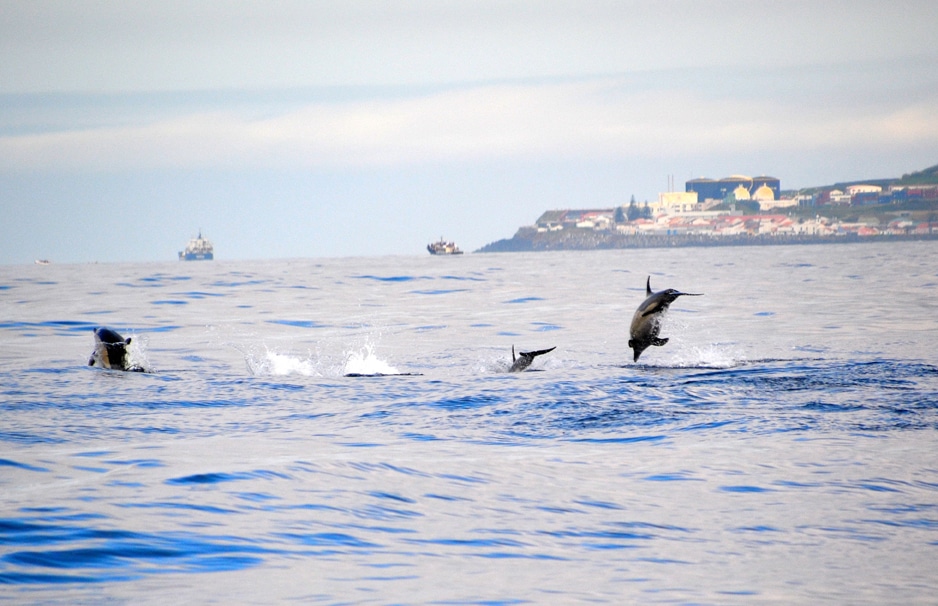
“You should not support dolphin encounters in captivity,” Miranda told us. “When they are captured in the wild and separated from their complex societies, they become depressed and are sometimes even medicated to get them to perform for tourists.”
Wait, what?
Miranda went on to give us disturbing details.
Dolphins are highly intelligent with large and complex brains. When they are separated from their families and confined in pools, they can end up having dramatically shortened lives.
Dolphins in captivity have been known to commit suicide by starvation or suffocation.
In captivity they are unable to communicate or form relationships, care for each other or form social bonds.
Like humans, dolphins have a limbic system and can experience joy, love, grief, frustration and anger.
A recent study published in the journal Mathematics and Physics recorded dolphins engaged in what appeared to be an exchange that resembled a human-type conversation.
Confining dolphins for no other reason than amusement is cruel, as it deprives them of the instincts to engage in normal behavior in their natural habitat.
We arrived back on shore, amazed at not only the privilege of seeing whales and dolphins in the wild, but also at what we learned during the trip.
Many thanks to Futurismo for providing such a uniquely educational and emotional experience!
Have you been on any tours focused on Wildlife in the Azores? Share your experience in the comments below!
Disclosure: The author was honored to be the guest of VisitAzores during her stay in São Miguel. As always, the opinions, reviews and experiences are her own.
Latest posts by Patti Morrow (see all)
- An Unforgettable Guide To Pisac, Peru’s Most Underrated City - Apr 10, 2018
- How To Explore Eastern Europe’s Surprising Sparkling Wine Culture - Dec 13, 2017
- An Inside Look At China’s Mesmerizing Food Markets - May 15, 2017
- This Is What Happens When You Visit Sweden For The Coffee - Mar 15, 2017
- Cooking Authentic Macedonian Food At Lake Ohrid - Feb 8, 2017

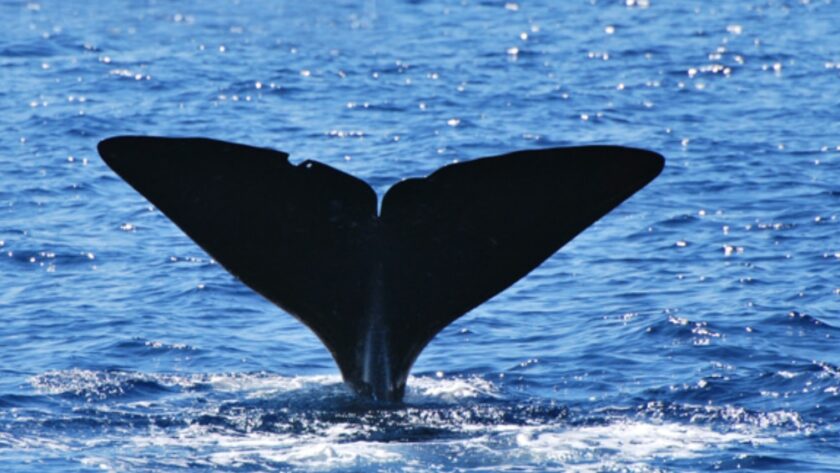
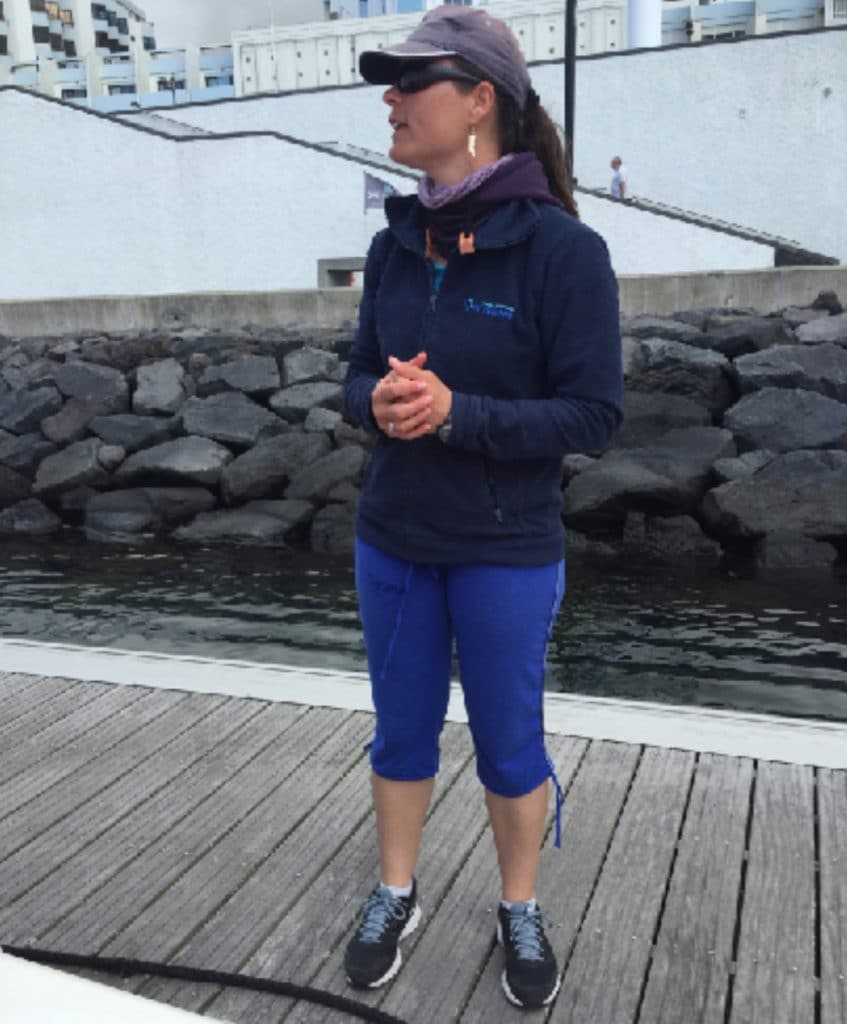
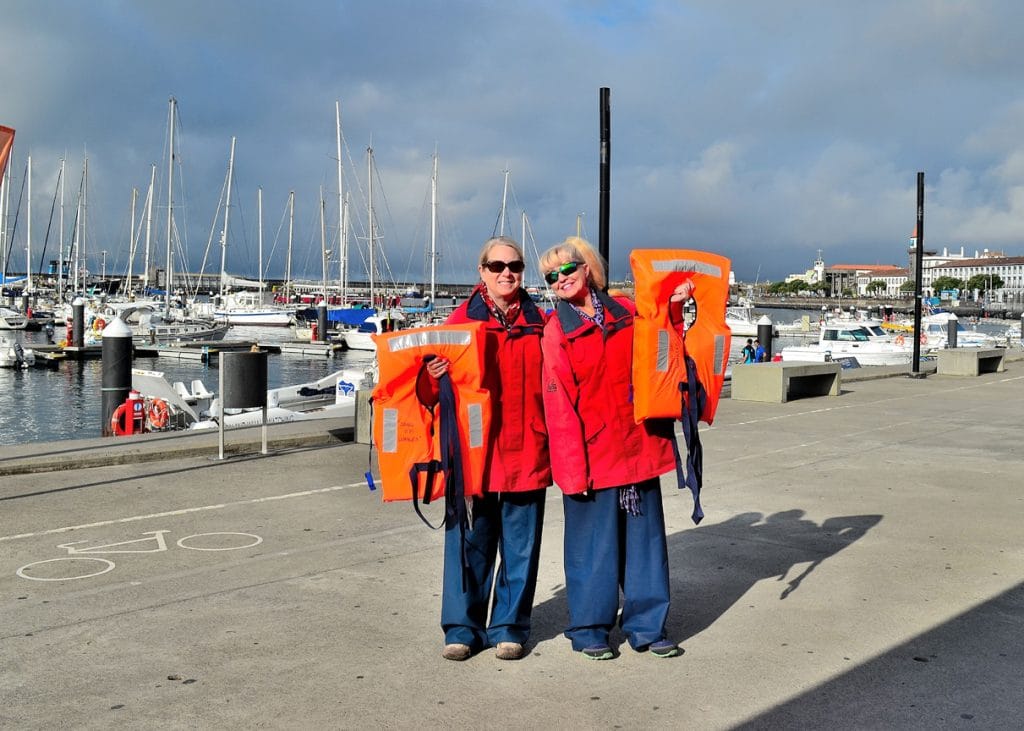
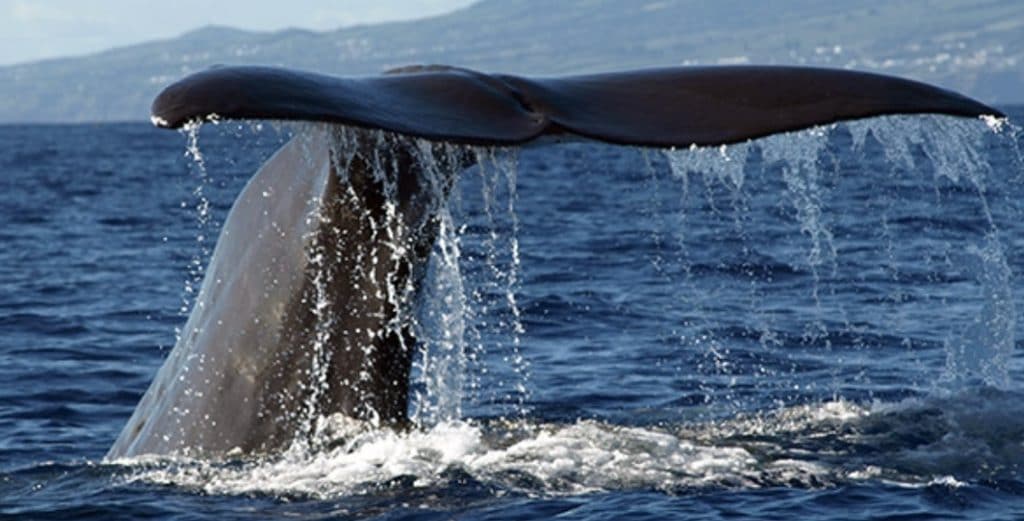
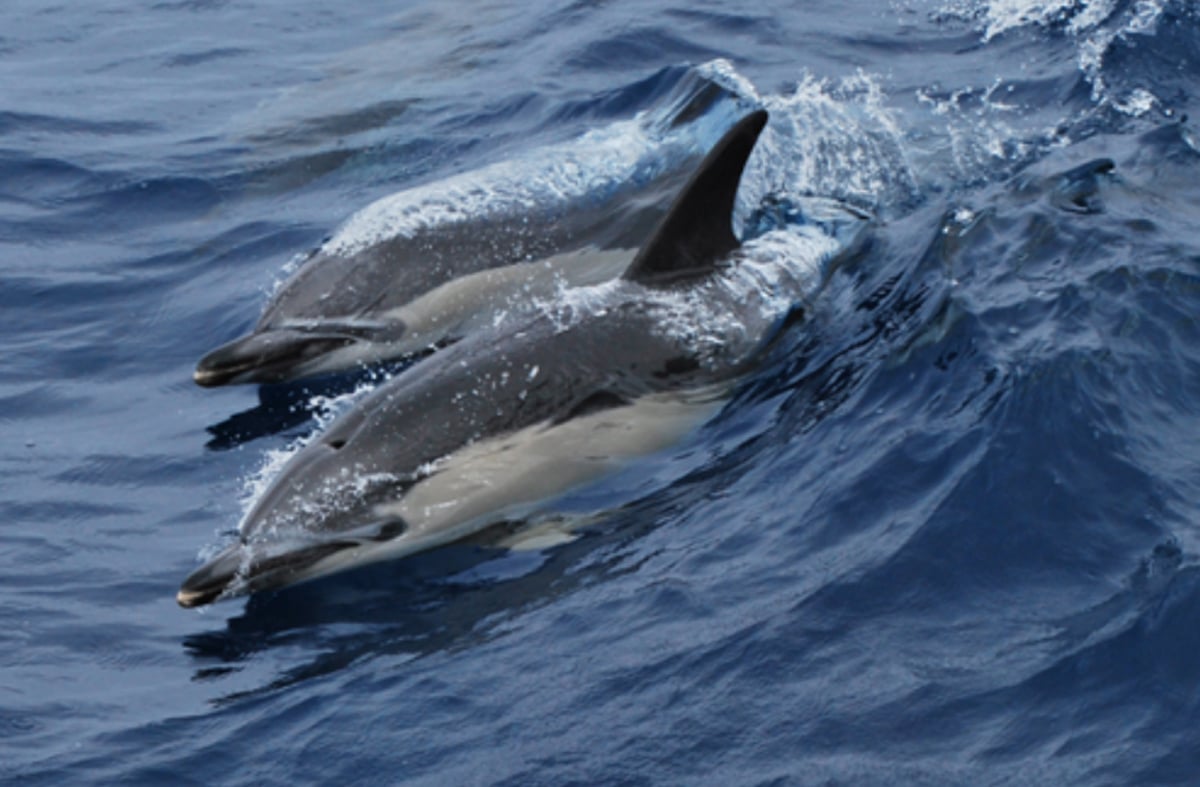



I had no idea that thecAzores was such as important location for whale populations. Glad to hear they support sustainable encounters with marine life!
I’ve been whale watching and it is absolutely thrilling. I didn’t need another reason to visit the Azores but you’ve given me one more!
The more we travel the more we find out that there are responsible tour operators doing good work and not just looking for a quick buck. A very interesting and informative post and hopefully we will get to experience this for ourselves.
Thx for this super post on whale watching in the Azores, Patti. I’ve not yet visited this region, but when I do, responsible whale watching with Futurismo will be top of my list!